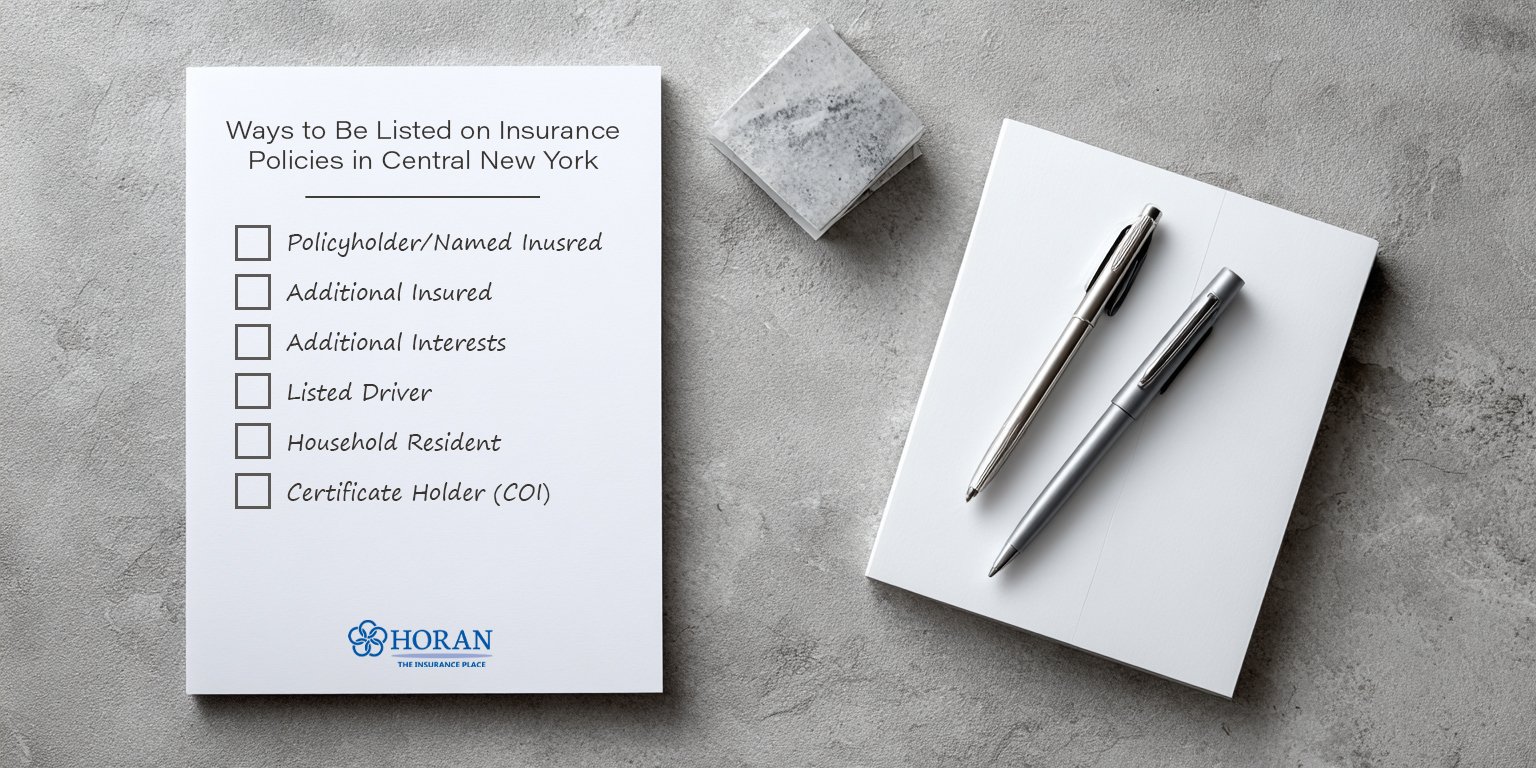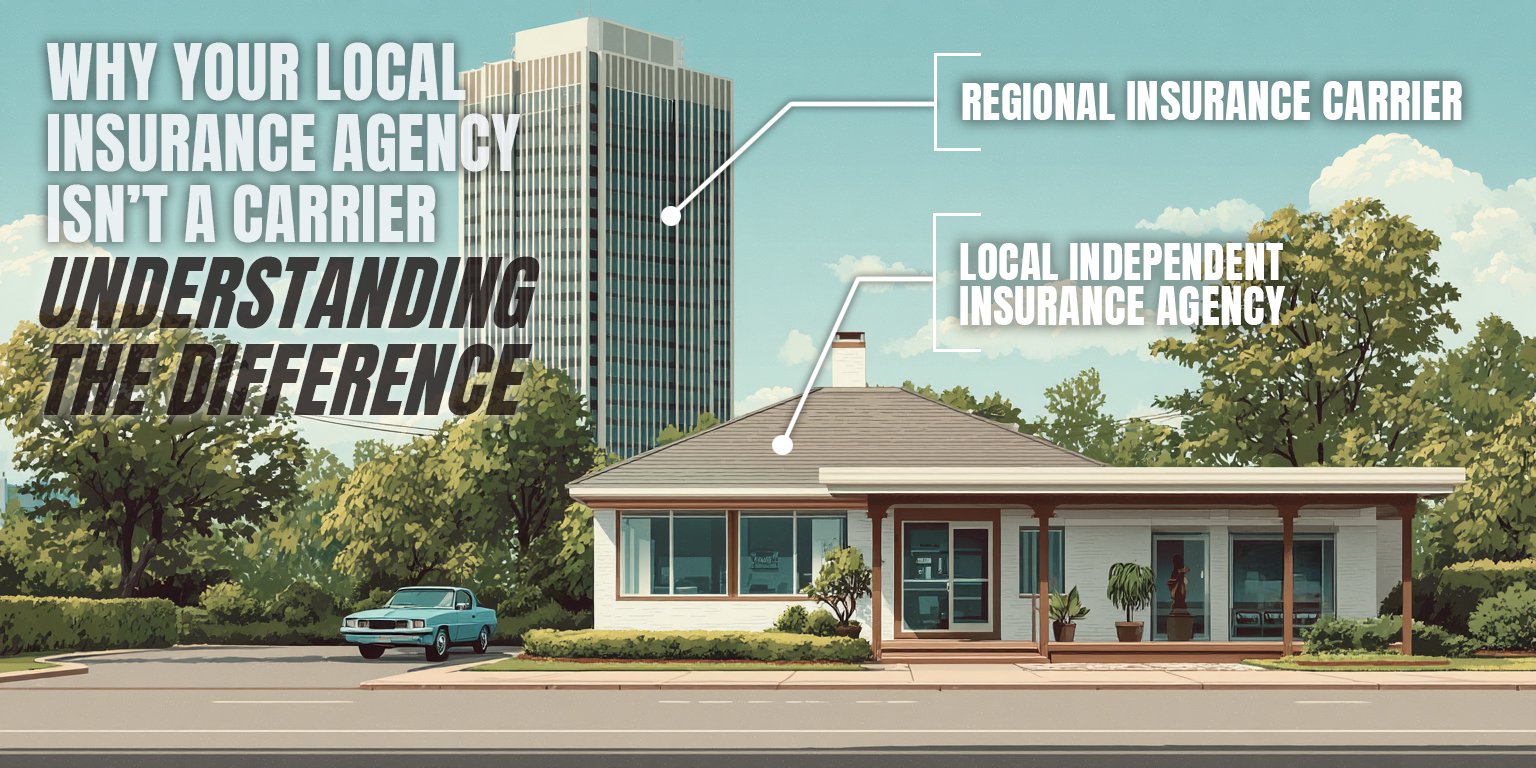When Can You Switch Insurance Companies? A Central New York Guide to Changing Carriers
August 6th, 2025
4 min read

You're reviewing your insurance policies and wondering if you're getting the coverage you need at a fair price. Maybe your current carrier raised your rates, or perhaps you've found what seems like a better option with another company. The question that often stops people in their tracks is simple: when can you actually make the switch?
Many Central New York residents assume they're locked into their current policies until renewal time. This misconception keeps them paying for coverage that may not serve their situation well. At the Horan insurance agency, we help clients throughout Central New York understand their options for changing carriers and the process involved in making transitions between insurance companies.
In this article, we'll explore when you can switch insurance companies, how the process works with different types of coverage, and what you need to know about timing your transition to avoid gaps in coverage.
Understanding Your Freedom to Change Insurance Carriers
For most policyholders, the situation is generally straightforward: you can often switch insurance companies at any time during your policy period, though individual policy terms may vary. This typically applies to your auto insurance, homeowners coverage, and most business insurance policies. You generally don't need to wait until your renewal date to make a change.
When you decide to switch carriers, the process usually involves canceling your current policy and starting coverage with your new company. Your current insurer typically calculates any refund owed to you on a per-day basis for the unused portion of your premium.
The flexibility to change carriers gives you control over your insurance decisions. Whether you're dealing with poor customer service, rate increases, or simply found better coverage elsewhere, you can act on your decision when it makes sense for your situation.
Learn the 6 Key Reasons to Consider Switching Your Home Insurance Coverage.
How Policy Cancellation and Refunds Work When You Switch
The financial aspect of switching insurance companies often concerns policyholders. When you cancel a policy mid-term, insurance companies typically handle the money in one of two ways.
If you've paid your premium in advance—which is common with annual or six-month policies—you'll often receive a refund for the unused portion. The insurance company usually calculates this refund on a daily basis.
For instance, if you're switching your auto insurance in Liverpool three months into a six-month policy, you'll likely get back approximately half of what you paid.
On the other hand, if you owe money on your current policy, you'll typically receive a final bill for the coverage period you actually used. This situation might occur if you pay monthly and haven't yet paid for the full month when you cancel.
Special Considerations for Workers Compensation Policies
While most insurance policies offer flexibility in timing, workers compensation coverage operates differently. These policies typically have anniversary dates that affect when you can make changes. The structure of workers compensation insurance requires more coordination with your insurance agent to help address compliance with state requirements and coverage transitions.
For business owners in Central New York considering changes to their workers compensation coverage, working with an experienced agent becomes particularly important. The timing and process require more planning than switching your auto or home insurance.
Understanding Brokered Policies and Associated Fees
Some insurance policies, particularly specialty or hard-to-place coverage, may be arranged through broker networks. These brokered policies often involve additional fees that work differently from standard policy premiums when you decide to switch carriers.
When you cancel a brokered policy mid-term, you typically won't receive a refund for broker fees paid at the policy's inception. These fees compensate the broker network for placing your coverage and remain non-refundable regardless of when you cancel.
Additionally, certain brokered policies include minimum earned premium provisions. This means if you cancel within the first few months of coverage, you may not receive the standard per-day refund calculation. Instead, the insurance company retains a predetermined minimum amount, which could be several months of premium regardless of your actual coverage period.
For Central New York business owners with specialized coverage needs—such as contractors requiring surety bonds or businesses with unique liability exposures—understanding these fee structures before purchasing becomes important for making informed decisions about potential carrier changes.
Strategic Timing for Different Types of Insurance Coverage
Different insurance types may benefit from different switching strategies. For auto insurance, you might time your switch to align with vehicle registrations or to take advantage of seasonal rate changes. Some carriers offer better rates during certain times of the year.
For homeowners insurance, consider your local weather patterns. Central New York's harsh winters mean you'll want continuous coverage without gaps. Planning your switch during calmer weather months can provide more flexibility if any issues arise during the transition.
Business insurance switches require careful coordination to help address all aspects of your coverage—from general liability to commercial auto—during the transfer process. This becomes particularly important for businesses with multiple policies or complex coverage needs.
Learn more about the ideal time to switch to a new auto insurer in CNY.
Making Sure Your Coverage Transition Goes Smoothly
Switching insurance companies requires attention to timing and detail. You'll want to secure your new policy before canceling your current one to avoid coverage gaps. Even a single day without insurance can create significant liability exposure.
Start by obtaining quotes and completing the application process with your new carrier. Once you have a firm start date for your new policy, you can then cancel your existing coverage. This sequence helps maintain continuous coverage throughout the transition.
Keep documentation of both your cancellation and new policy start dates. This paperwork helps resolve any questions about coverage periods and confirms your insurance history for future reference.
Take Control of Your Insurance Decisions
Understanding that you can often switch insurance companies at any time puts you in control of your coverage decisions. You typically don't need to wait for renewal periods or anniversary dates for most types of insurance. This flexibility allows you to respond to rate changes, service issues, or better coverage opportunities as they arise.
The Horan insurance agency works with multiple carriers to help Central New York residents and business owners explore their options. We can review your current coverage, discuss alternatives, and help coordinate transitions to work toward maintaining continuous coverage throughout the process.
Click the Get a Quote button below to explore your options for switching insurance carriers and discover coverage that better fits your situation.
Daniel is an accomplished content creator. He has been working in publishing for almost two decades. Horan Companies hired Daniel as its content manager in November 2022. The agency entrusted its messaging to him. Since then, Daniel has written insurance articles, service pages, PDF guides, and more. All in an effort to educate CNY readers. He's helping them understand the world of insurance so they can make informed decisions.
Topics:




























